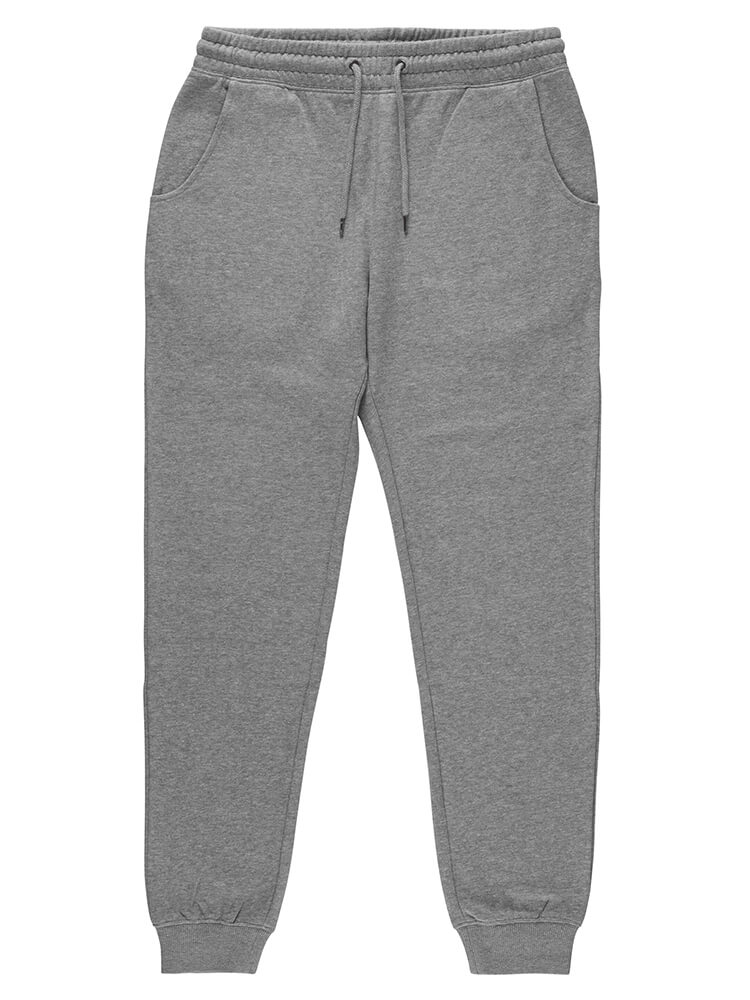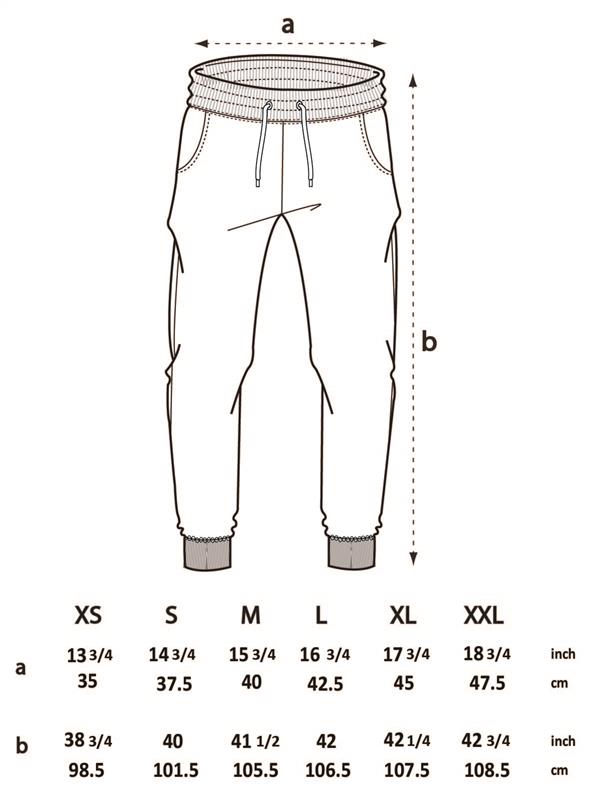-
Tipo
-
CategoríaColores
- View All Colours
Colores
-
Ayuda y Soporte
- Preguntas Frecuentes
- Hecho a medida
- Recursos
- Privacidad
Ayuda y Soporte -
Nuestra compañía
- Qué hacemos
- Contactar
- Blog
Nuestra compañía -
Nuestras Marcas

COR68
pantalón de chándal unisex
Bamboo 2025 Collection
- S
- XL
Brushed 3-ply 9.44 oz / 320 g
-

MGY - Melange Grey
80% Algodón peinado orgánico 20% Polyéster recilado post-consumo
![Global Organic Textile Standard (GOTS) [80] Global Organic Textile Standard (GOTS) [80]](/assets/images/affiliate/organic-textiles.svg)

The Global Organic Textile Standard (GOTS) is the worldwide leading textile processing standard for organic fibres, including ecological and social criteria, backed up by independent certification of the entire textile supply chain.
Continental Clothing Co. is licensed by the Soil Association to supply fully certified organic products in accordance with the Global Organic Textile Standard. The Company also holds a licence to use the Soil Association Organic Standard logo on products that meet the organic standard criteria.
All the certified products that are sold 'unprocessed' directly by retailers, that is without printing or any other chemical processing, can carry the logo. Garments that are printed by licensed printers according to the organic standard should be labelled with the printer's (last processor) licence number.
The aim of the standard is to define world-wide recognised requirements that ensure organic status of textiles, from harvesting of the raw materials, through environmentally and socially responsible manufacturing up to labelling in order to provide a credible assurance to the end consumer.
Textile processors and manufacturers are enabled to export their organic fabrics and garments with one certification accepted in all major markets. Approved are natural fibres that are certified organic and fibres from conversion period certified according to recognised international or national standards and certified by any IFOAM accredited or internationally recognised (according to ISO 65) certifier.
Key criteria for processing and manufacturing include:
Environmental Criteria
- At all stages through the processing organic fibre products must be separated from conventional fibre products and must to be clearly identified
- All chemical inputs (e.g. dyes, auxiliaries and process chemicals) must be evaluated and meeting basic requirements on toxicity and biodegradability/eliminability
- Prohibition of critical inputs such as toxic heavy metals, formaldehyde, aromatic solvents, functional nano particles, genetically modified organisms (GMO) and their enzymes
- The use of synthetic sizing agents is restricted; knitting and weaving oils must not contain heavy metals
- Bleaches must be based on oxygen (no chlorine bleaching)
- Azo dyes that release carcinogenic amine compounds are prohibited
- Discharge printing methods using aromatic solvents and plastisol printing methods using phthalates and PVC are prohibited
- Restrictions for accessories (e.g. no PVC, nickel or chrome permitted)
- All operators must have an environmental policy including target goals and procedures to minimise waste and discharges
- Wet processing units must keep full records of the use of chemicals, energy, water consumption and waste water treatment, including the disposal of sludge. The waste water from all wet processing units must be treated in a functional waste water treatment plant.
- Packaging material must not contain PVC. Paper or cardboard used in packaging material, hang tags, swing tags etc. must be recycled or certified according to FSC or PEFC
Technical Quality and Human Toxicity Criteria
- Technical quality parameters must be met (s.a. rubbing, perspiration, light and washing fastness and shrinkage values)
- Raw materials, intermediates, final textile products as well as accessories must meet stringent limits regarding unwanted residues
Minimum Social Criteria
Minimum social criteria based on the key norms of the International Labour Organisation (ILO) must be met by all processors and manufacturers, including at farm level. They must have a social compliance management with defined elements in place to ensure that the social criteria can be met. For adequate implementation and assessment of the following social criteria topics the listed applicable key conventions of the International Labour Organization (ILO) have to be taken as the relevant basis for interpretation.
- Employment is freely chosen
- There is no forced or bonded labour
- Freedom of association and the right to collective bargaining are respected
- Working conditions are safe and hygienic
- Child labour must not be used
- Living wages
- Working hours are not excessive
- No discrimination is practised
- Regular employment is provided
- Harsh or inhumane treatment is prohibited
Quality Assurance System
Generally a company participating in the GOTS certification scheme must work in compliance with all criteria of the standard. GOTS relies on a dual system to check compliance with the relevant criteria consisting of on-site auditing and residue testing.
Read the full standard here


As more and more people vow never to clothe themselves in cruelty, retailers and designers are meeting the demand for animal-friendly clothes in style.
Although you can easily find fashionable animal-free products in many high-street stores, some companies go further, either by ensuring that everything they sell is 100 per cent vegan or by clearly sign-posting their vegan products. The “PETA-Approved Vegan” logo is a way of recognising these progressive compassionate businesses – and helping ethical consumers identify where to shop with confidence, safe in the knowledge that they’re not supporting the exploitation of animals.
Check the listing of brands HERE
About PETA
The People for the Ethical Treatment of Animals (PETA) Foundation is a UK-based charity dedicated to establishing and protecting the rights of all animals.
Like humans, animals are capable of suffering and have interests in leading their own lives; therefore, they are not ours to use – for experimentation, food, clothing, entertainment or any other reason. PETA and our affiliates around the world educate policymakers and the public about cruelty to animals and promote an understanding of the right of all animals to be treated with respect.
https://www.peta.org/about-peta/contact-peta/


¿Por qué no puedo ver un precio?
Somos una empresa mayorista y no vendemos al público general.
Debido a la naturaleza de las compras al por mayor, las compras en grandes cantidades afectan el precio de cada artículo que está disponible para nuestros clientes.
Si es un negocio y desea comerciar con nosotros, a continuación podrá registrarse para ello.
Comercie con nosotrosSimilar Products
Acerca de
Continental and EarthPositive are registered trademarks of Continental Clothing Company. All rights reserved. © 2025




![Global Organic Textile Standard (GOTS) [80]](https://www.continentalclothing.com/assets/images/affiliate/organic-textiles.svg)